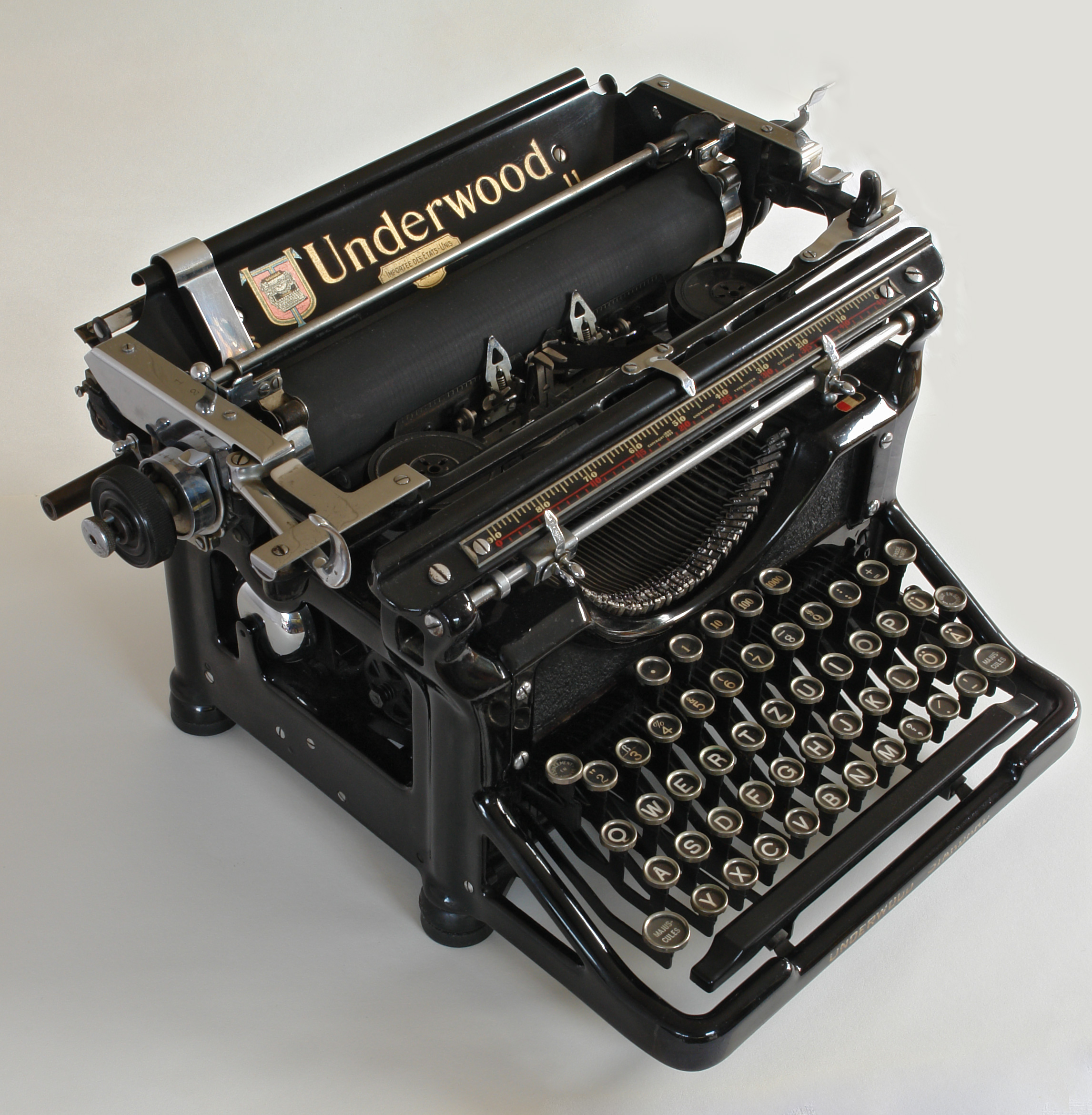|
The Typewriter (play)
"The Typewriter" is a short composition of light music by American composer Leroy Anderson, which features an actual typewriter as a percussion instrument. Composition Anderson completed "The Typewriter" on October 9, 1950 in Woodbury, Connecticut. "The Typewriter" received its first performance on September 8, 1953 during a recording Anderson and the Boston Pops Orchestra made in New York City for Decca Records. Anderson composed the melody for symphony orchestra, symphony and pops orchestras; William Zinn and Floyd Werle arranged it for string orchestras and Concert band, wind bands respectively. Its name refers to the fact that its performance requires a typewriter, while using three basic typewriter sounds: the sound of typing, the "ring" of the carriage return indicating an approaching end-of-line (a Call bell, standard desk bell is used for it), and the sound of the typewriter’s carriage returning. In some cases the sound of the typewriter’s carriage returning is made ... [...More Info...] [...Related Items...] OR: [Wikipedia] [Google] [Baidu] |
Leroy Anderson
Leroy Anderson ( ) (June 29, 1908 – May 18, 1975) was an American composer of short, light concert pieces, many of which were introduced by the Boston Pops Orchestra under the direction of Arthur Fiedler. John Williams described him as "one of the great American masters of light orchestral music." Early life Born in Cambridge, Massachusetts to Swedish parents, Anderson was given his first piano lessons by his mother, who was a church organist. He continued studying piano at the New England Conservatory of Music. In 1925, Anderson entered Harvard College, where he studied musical harmony with Walter Spalding, counterpoint with Edward Ballantine, canon and fugue with William C. Heilman, orchestration with Edward B. Hill and Walter Piston, composition, also with Piston, and double bass with Gaston Dufresne. He also studied organ with Henry Gideon. He graduated with a Bachelor of Arts, magna cum laude in 1929 and was elected to Phi Beta Kappa."Syncopated Clock, Indeed"; ... [...More Info...] [...Related Items...] OR: [Wikipedia] [Google] [Baidu] |
